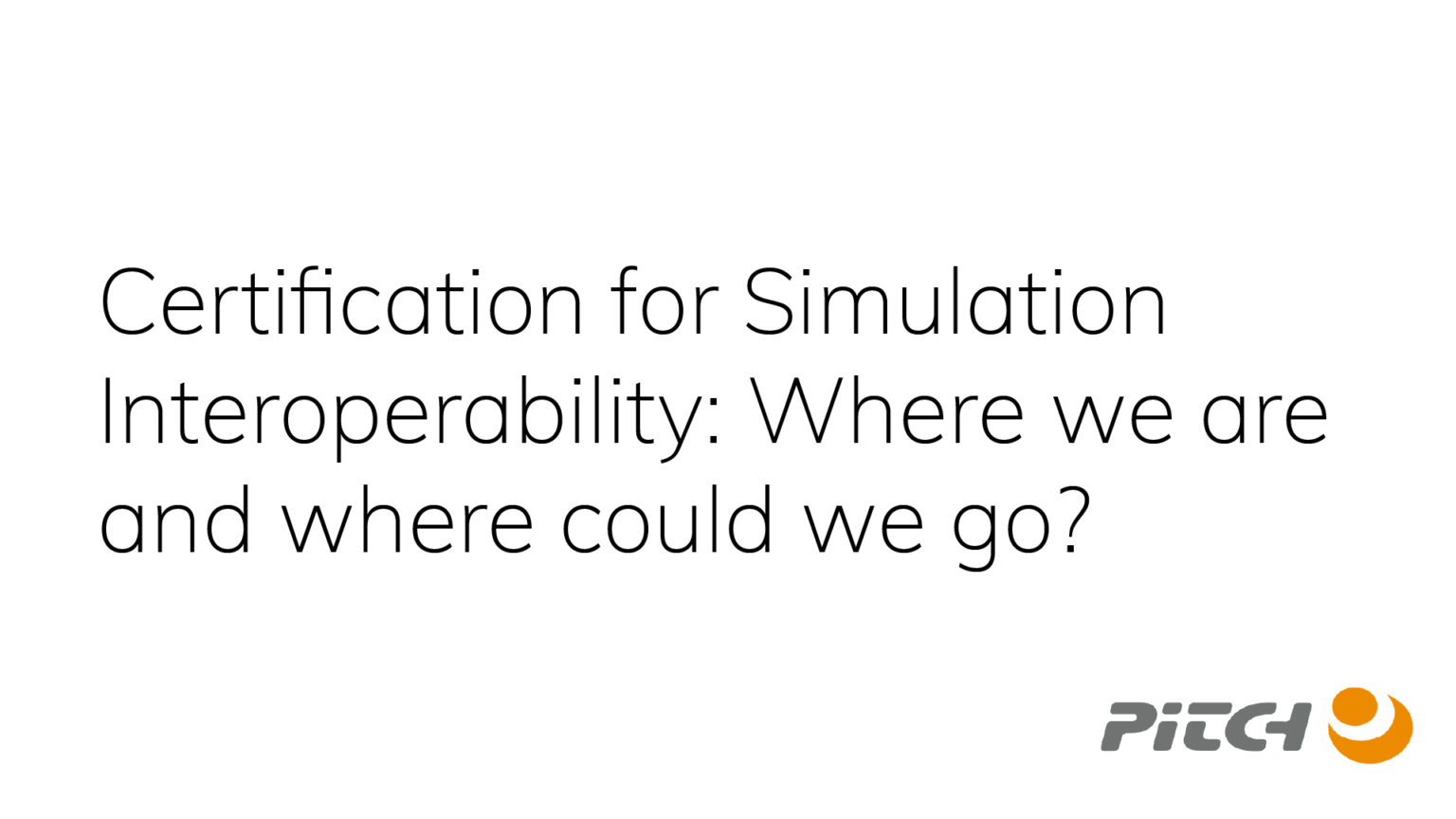The current “language” used for describing simulation interoperability, for example DIS, HLA and RPR FOM, has provided a good base of understanding between simulations, but it does not always achieve the desired outcomes.
For example, an HLA Evolved federate that is “RPR FOM v2.0 compliant” does not necessarily mean it is fully interoperable with another “RPR FOM v2.0 compliant” federate if they are providing simulations for different parts of the object model, or interpret the information within the objects differently.
To achieve meaningful interoperability and develop a market of truly reusable simulation components, this “language” needs to evolve to a next level. In many other domains, this evolution is often achieved through the usage of a concept such as “capability certification”.
This paper explores why this evolution in interoperability language is required in the simulation domain, what we can learn from other industries, the current state of play around simulation use cases-such as NATO’s HLA Certification process and the associated Integration, Verification and Certification Tool, and SISO’s Simulation Interoperability Readiness Levels concept-and how they could be taken further by standards groups, industry and governments.
Getting interoperability right through the usage of de-facto standards certification will further increase the opportunities to re-use simulation components. This could open the door to more advanced federations of simulations by allowing developers to concentrate on how they can best exploit models from other best of breed simulation components, rather than continuously adapting or integrating their applications to work with different interpretations of standards.
Certification offers improved reuse and savings for the developer, integrator and ultimately the end user both in the short term and the long term evolution of capabilities.
This paper was first presented at the SISO Innovation Workshop (SIW), February 2022.
Download the full paper using this link.

